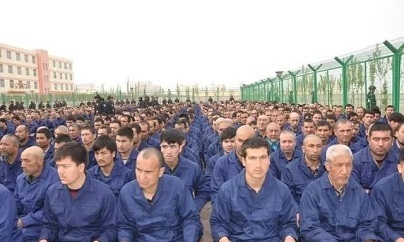The East Turkistan Government in Exile (ETGE) has rejected Turkiye's proposed Uyghur migration plan, calling it part of China's genocidal agenda to depopulate East Turkistan and replace Uyghurs with Chinese settlers. ETGE urged Turkiye to provide political and strategic support to help Uyghurs regain their independence
Feb 11, 2025, Organizer
The East Turkistan Government in Exile (ETGE) has rejected the Uyghur migration plan to Turkiye from East Turkistan. The migration plan was proposed by Professor Erhan Afyoncu, the president of Turkiye’s National Defense University.
Urging that the proposal aligns with China’s broader agenda, ETGE on its official website stated, “While we acknowledge
concerns regarding Turkiye’s declining birth rates, we must emphasise that this proposal ultimately serves China’s agenda of genocide, colonization, and occupation. It aids China’s objective of ethnically cleansing East Turkistan, the cradle of Turkic civilization and the sacred homeland of the Turkic people, by depopulating its native Uyghur population and replacing them with Chinese colonial settlers.”
ETGE urged that Turkiye must provide political and strategic support against China’s practices of occupation, colonialism,
and genocide. ETGE further reiterated that Turkiye should assist the people of East Turkistan in regaining their legitimate independence.
Turkiye hosts one of the largest Uyghur diaspora communities outside China, with Uyghur groups estimating the population to be between 50,000 and 75,000 according to a report published by Voice of America. Since the 1950s, Uyghurs seeking refuge from what they describe as severe repression by the Chinese government have found shelter in Turkiye.
The persecution of Uyghurs in China, particularly in Xinjiang, involves widespread human rights abuses, including mass
detentions in “re-education camps,” forced labour, and heavy surveillance.
The Chinese government has been accused of religious repression, cultural destruction, and forced assimilation, limiting the Uyghur language, religious practices, and cultural traditions.
Reports indicate family separations, forced indoctrination, and destruction of Uyghur heritage sites. International bodies and human rights organizations have labelled these actions as genocide and crimes against humanity, while China denies these claims, calling them false and part of a campaign to fight extremism. The situation remains one of the most contentious global human rights issues.
(with inputs from ANI)

